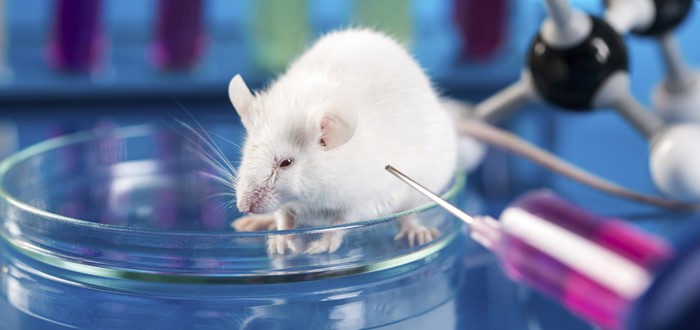It’s unknown how many mesothelioma patients are opting for this, but the Associated Press reported that some cancer patients use specially bred lab mice to try chemotherapy choices in advance.
Here’s how it works. You have mesothelioma. Your mesothelioma doctor wants to start you on chemotherapy.
But you and the doctor aren’t sure which mix of chemotherapy drugs will be most effective on your unique mesothelioma tumors.
To find out which mix should be best for you, you contact the lab that supplies mice for use as test avatars. Several of these mice are implanted with bits of your mesothelioma tumor
The mesothelioma tumor grows inside the mice. Later, the lab subjects each mouse to one of the mesothelioma chemotherapy cocktails you’re considering taking.
The effectiveness of the chemotherapy treatment in each mouse is observed and noted.
At the end of the process, the lab gives you a report informing you about which cocktail worked best against your mesothelioma tumor.
A Mesothelioma Chemotherapy Success Gauge
Proponents say this method of pre-testing allows patients to make easy but informed choices about the menu of chemotherapy options they have.
The benefit is it spares patients the need to try one chemotherapy treatment after another until they hit on the one that they can tolerate and that works for them.
The Associated Press spoke to one patient who said she used the mice to help her avoid wasting time on ineffective chemotherapies.
She tested all the possible drugs available for her particular form of cancer, as well as a number of other drugs not approved for it but that have shown promise in the lab as future alternative treatments.
But not everyone thinks mice avatars are the way to go.
The American Cancer Society’s chief medical officer was quoted as saying this strategy is not supported by enough science yet to allow it to be considered anything other than experimental.
Cancer Patients Expressed Satisfaction
In counterpoint, the Associated Press described one study involving 70 cancer patients. The mice used by those patients was said to have “generally reflected how well patients responded to various drugs.”
Still there are shortcomings to using mice avatars. According to the Associated Press, it costs more than $10,000 to breed, implant and test the mice — a sum not covered by insurance.
It also takes a while for results to become known. Consequently, patients often end up starting therapy before they can find out which drug combinations worked best.
And the tumor is implanted under the mouse’s skin, not on or in its lungs or abdomen. As a result, the tumor grows in an environment different from where it’s growing in the patient.
Critics caution that test results can come out skewed and be misleading.
Still, patients who use mice avatars appear happy with the strategy.
A Canadian man interviewed for the story said of the chemotherapy drug he chose, “It was working on the mice so I knew it would work on me. It [gave me] a boost of confidence.”
The wire service reported that the man’s cancer is currently in remission.

